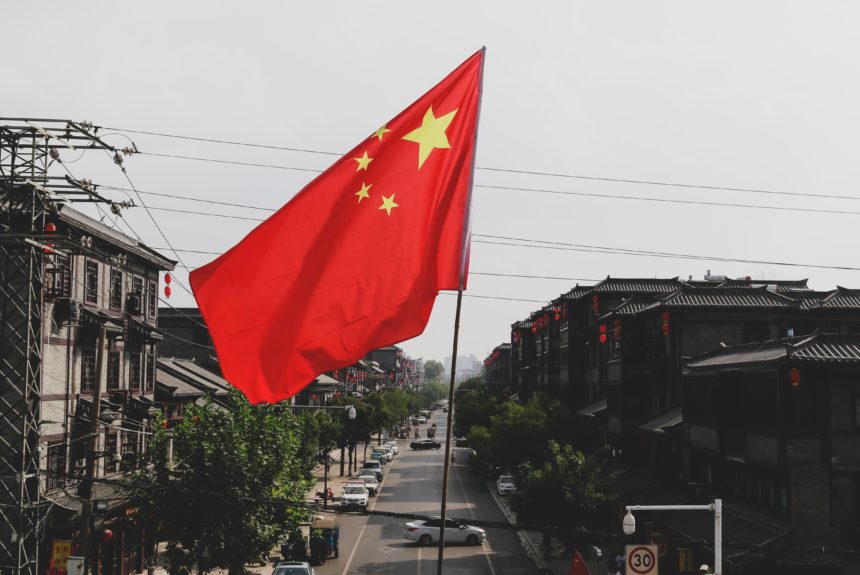China is now the world’s second largest economy and a crucial actor in geopolitics. Through its Belt and Road Initiative, China has grown its influence globally by funding projects in developing countries. Yet China has many environmental problems: significant levels of smog, poor water and soil quality, and the highest amount of annual greenhouse gas emissions in the world.
While China has nominally “committed” to reducing emissions, the Chinese Communist Party continues to build coal-fired power plants at a faster rate than the rest of the world, while having a track record of under-reporting its carbon footprint. It also violates human rights in both Hong Kong and the Xinjiang province – in some instances relying on forced labor to build solar panels.
There is no realistic way the world can tackle climate change if China doesn’t reduce its emissions. Given China’s growing economic and geopolitical influence, it is imperative that the United States and the global community start holding the country accountable for its actions.
Fact vs Myth:
- Fact: Greenhouse gas emissions do not respect borders.
- Once a greenhouse gas is emitted, it travels to the atmosphere, which impacts the entire world.
- Myth: The United States is the world’s largest carbon emitter.
- China is emitting more emissions than the rest of the developed world combined.
- Fact: In order to address global climate change, China must reduce emissions.
- The World Bank has stated that: “[g]lobal environmental problems cannot be solved without China’s engagement.”
The importance of holding China accountable
- China is the world’s largest polluter
- In 2019, China emitted 27% of the world’s greenhouse gas emissions and now emits more than the rest of the developed world combined.
- Seven of the ten most plastic-polluted rivers in the world run through China.
- Since 1990, China has tripled its greenhouse gas emissions and has increased its emissions by 25% in just the last decade.
- China violates human rights
- The CCP has sent Uyghurs, a mostly Muslim ethnic group within its borders, to “re-education camps” and has reportedly forcibly sterilized women.
- The Chinese government has also used Uyghur slave labor to produce popular commodities such as clothing and solar panels.
- The Chinese government has suppressed free speech in Hong Kong and has violated due process for protestors.
- China will be a primary factor in global economics and geopolitics for years to come
- China’s economy is currently the second largest in the world and is projected to keep expanding rapidly.
- China has expanded its influence in global markets through its Belt and Road Initiative (BRI).
- Through the BRI, China is financing development projects across the globe, with some 140 countries involved.
- The U.S. relies on China for 80% of its rare-earth element needs, which are crucial in powering electric cars, fighter jets, and renewable energy technology.
Markets vs Mandates
- While China has adopted some market structures in its economy, it continues to be ruled by a centralized, authoritarian system.
- On The Heritage Foundation’s Index of Economic Freedom, China ranks 107 with a “mostly unfree” economy.
- Economies which are “mostly free” have environmental index scores nearly double that of “mostly unfree” economies.
- According to The Heritage Foundation’s Index of Economic Freedom, private property rights in China remain “weak,” with a majority of land being “owned either by the state or rural collectives” and land seizures being common.
- Weak property rights disincentivize stewardship and environmental responsibility. That leads to more pollution and degradation.
How to hold China accountable and tackle global climate change
- Reduce burdensome domestic regulations so the United States can become less economically dependent on China’s resources and develop a domestic supply chain for critical minerals through competitive market forces.
- Continue an “all of the above” energy strategy that promotes energy affordability and cleaner environments.
- Export clean energy technologies around the globe through clean free trade.
- Internationally, adopt realistic climate mitigation strategies that rely on economic freedom in order to boost the prosperity of people and the environment.
- Policies that encourage responsible economic growth will garner more international support than ones that are regressive and anti-growth.
Summary
- China is the world’s largest polluter and a significant human rights violator.
- China will be an economic powerhouse for decades to come.
- Without cooperation from China, it will be extraordinarily difficult to mitigate global greenhouse gas emissions.
- Through policies that are rooted in economic freedom, regulatory reform, and open markets, the international community can reduce emissions and grow their economies.


